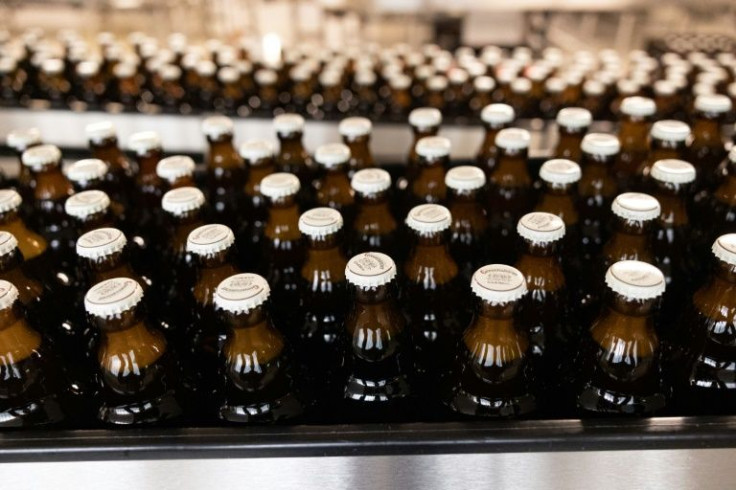10 Impressive Health Benefits Of Lager You Didn't Know About

KEY POINTS
- National Lager's Day is celebrated on Dec. 10
- High levels of yeast in unfiltered beer may help men's gut health
- Lager beer may lower the risk of a heart attack
National Lager Day is celebrated every Dec. 10. The best way to celebrate it is to clink glasses filled with highly-carbonated lagers after a long day of toiling at work or even just to cap off the day at home while watching the latest shows on Disney+.
Lager is a common American style of beer that is fermented with yeast through a bottom-fermentation process at low temperatures.
Sit back, kick those boots off and check out this list of lager's health benefits.
1. Good for the gut

According to a study, high levels of yeast in unfiltered beer may help men's gut health since it increases the number of bacteria present in the gut.
The study published in the Journal of Agricultural and Food Chemistry involved 19 healthy men between the ages of 23 and 58 who were advised to drink 330 ml of Super Bock lager every dinner for a month. No signs or differences were seen in their "weight, body fat mass, or cholesterol levels" despite maintaining their normal eating habits.
The increased numbers of bacteria in the gut improved the microbiome, which is home to trillions of microorganisms that help people's digestive nutrition and produce nutrients from consumed substances.
2. Source of energy
Well, you can't just get your source of energy from bread and sweet desserts, but also from beverages like lager beers. Beer contains calories and carbohydrates — a type of nutritional content that supplies energy.
According to a study published by the Research Institute of Brewing and Maltin, 60% of the total energy value, which is grounded from calories, is found in typical lagers, followed by carbohydrates (both light and dark lagers) at 35%.
3. Has a natural compound

One of the primary ingredients in lagers is the natural plant "hop," which adds more flavor to lagers. Hops contain a nutritional compound called "xanthohumol" that can help improve metabolic syndrome and prevent weight gain.
4. Rich in vitamins

Other than hops, barley is another fundamental building block of lager. It is a starch-packed grain that is ricch in vitamins A, B1, C and E.
A whole grain of barley contains a hydroalcoholic extract that can prevent the development of chronic diseases, such as diabetes, cancer, obesity and cardiovascular disease, when consumed regularly.
5. Has Antioxidant properties

Antioxidant activity may be observed in lager beers with high polyphenol content, which is also a component of the grain barley. Consuming plants that are high in polyphenols regularly can lower the risk of developing cancer, heart disease, osteoporosis, diabetes and neurological illnesses.
6. Reduces atherosclerosis
Research published in the Journal of Agricultural and Food Chemistry found that lager beer reduces cholesterol and triglycerides (a common type of fat from consumed food). This led scientists to surmise that lager could inhibit atherosclerosis due to the polyphenols present in the beverage.
7. Potassium content

Some of lager beers' nutritional profiles may contain potassium, an electrolyte and mineral that supports the body's muscular and nervous functions. According to Harvard Medical School, potassium also plays a significant role in carbohydrate metabolism and heart rhythm regulation.
8. Improves bone health
A study published in the National Library of Medicine found a correlation between moderate beer drinking and better overall bone health in elderly women. Lager has been linked to osteoporosis prevention in postmenopausal women, owing to the polyphenol content of the beer.
9. Protein content

It's important to check nutritional labels since some beers contain proteins responsible for building and repairing body tissues.
10. B vitamin content
According to another study published in the National Library of Medicine, B vitamin is the more prominent nutrient in beer than in wine. B vitamins aid in energy production by breaking down fats and carbohydrates.
© Copyright IBTimes 2024. All rights reserved.





















